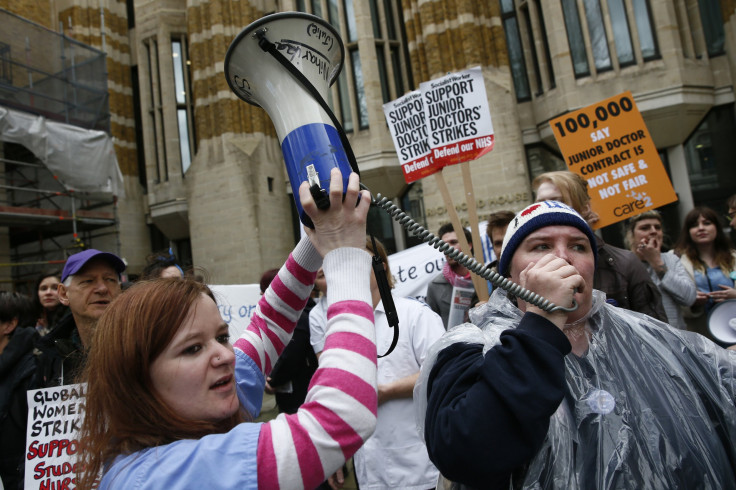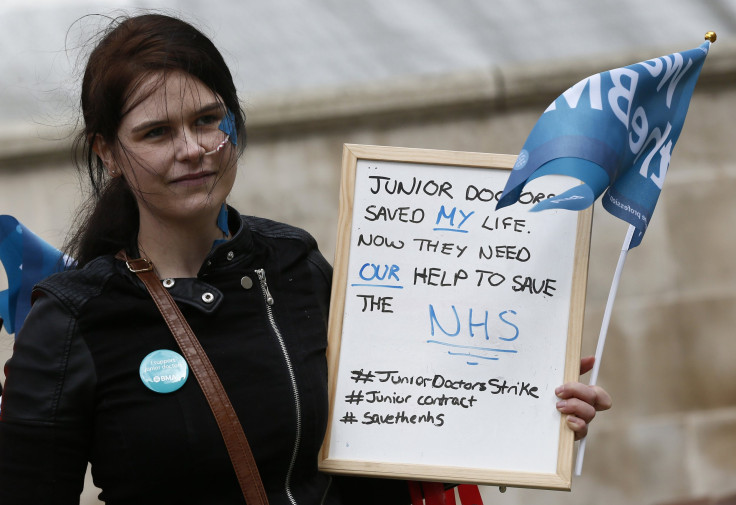England Junior Doctors Strike: Hospitals Brace For First Day Of All-Out Service Disruption

As the British government looks like it is in no mood to back down from its decision to impose a new unpopular contract on medical care workers, junior doctors from the country’s National Health Service (NHS) — who have been agitating against the contract for months now — are going on a two-day strike starting Tuesday that will affect almost all medical services, including accident and emergency, intensive care and maternity, which will all be disrupted for the first time in the long-running dispute.
The strike will be from 8 a.m. to 5 p.m., local time, (3 a.m. to noon EDT) on Tuesday and Wednesday. A majority of junior doctors are expected to join the strike, and only a small number are expected to show up for work. The NHS has taken measures — including cancelling holidays, postponing thousands of routine operations and redeploying middle-grade and senior doctors — to ensure that emergency care does not suffer and patient care remains normal.
The doctors’ discontent stems from a proposal by the government to extend NHS services to seven days a week. The main sticking point is payment for working Saturdays. At present, doctors get paid at a higher rate for working on the weekend, but under the new contract, Saturday work would be paid at the normal rate, to be compensated by an increase in the basic pay.

After negotiations between the government and the doctors’ trade union, the British Medical Association, broke down in January, the government announced in February it would impose the new contract on doctors starting August. In protest, BMA members had staged a two-day walkout in March as well, but unlike this time, that strike did not include emergency services.
Ahead of the strike, Health Secretary Jeremy Hunt reiterated Monday the government’s commitment to make the NHS a seven-day service in Parliament, saying: “We reaffirm that no trade union has a right to veto a manifesto promise voted for by the British people. We are proud of the NHS as one of our greatest institutions. But we must turn that pride into actions — and a 7-day service will help us turn the NHS into one of the safest, highest quality healthcare systems in the world.”
A survey of 861 adults in England by Ipsos MORI showed that 57 percent of the population still supports the doctors’ strike but the number is lower than 66 percent who supported the strike when polled in January, a time when emergency services were still being provided. The number that opposes the strike has remained at 26 percent through both surveys, but the number of people who blame both sides for the ongoing dispute has risen to 35 percent now, from 18 percent in February.
The NHS has set up a dedicated page on its website to provide information to the public about alternative services available during the strike.
© Copyright IBTimes 2024. All rights reserved.





















